by Michael Peel | Nov 11, 2025 | Graduate Students, Internship Experiences
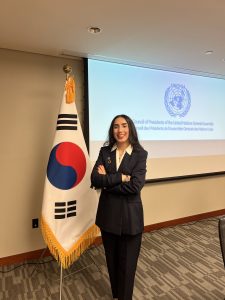
Zuleyha Cite, originally from Istanbul, Türkiye, earned her B.A. in International Relations from Marmara University’s Faculty of Political Science in June 2024. She is currently a second-year M.A. student in Diplomacy and International Relations at Seton Hall University, specializing in International Organizations. Her academic interests center on international peace and security, with a particular focus on United Nations studies, where she is dedicated to promoting global stability, human security, and multilateral cooperation.
At Seton Hall, Zuleyha is deeply engaged in campus life. She serves as a Graduate Assistant for the School of Diplomacy’s Social Media Team, the Social Media Editor for the Seton Hall Journal of Diplomacy and International Relations, and the social media Director for the United Nations Association of Seton Hall (UNA-SHU). Beyond the university, she currently interns with the Council of Presidents of the United Nations General Assembly (UNCPGA), gaining invaluable experience in international diplomacy.
The UNCPGA is an affiliated body of the United Nations General Assembly (UNGA) that supports the President of the UNGA, preserves the institutional memory of the Office of the President, and advances multilateralism through a revitalized General Assembly. Composed of all living former Presidents of the UNGA along with the current President as an ex officio member, the Council serves as a Global Leadership Forum and a repository of diplomatic expertise.
For Zuleyha, interning at the UNCPGA represents a unique opportunity that directly aligns with her specialization in International Organizations. Her coursework at Seton Hall provided a strong foundation in UN systems, global governance, and international cooperation, which she now applies in a real-world context. Her responsibilities include preparing briefing materials and analytical documents, drafting talking points for senior officials, coordinating communications and outreach, managing digital content, and summarizing high-level conferences and meetings.
In September 2025, Zuleyha participated in the Council’s Annual Meeting in New York, held during High-Level Political Week at the UN. The meeting attended by nine former Presidents of the General Assembly culminated in the adoption of the UN80 Declaration, which calls for renewed UN reform to address the complex peace and security challenges of the 21st century. As part of the preparation process, Zuleyha conducted extensive research on UN reform history and the UN80 Initiative launched by Secretary-General António Guterres. During the meeting, she contributed to the drafting and updating of the declaration text in real time and supported its adoption process, while also assisting with communications and operational logistics.
Her work at the UNCPGA has provided Zuleyha with firsthand experience in high-level diplomatic procedures and collaboration with seasoned global leaders. Meeting distinguished figures, including the current President of the General Assembly, H.E. Annalena Baerbock, was a particularly memorable highlight.
This internship has reinforced Zuleyha’s commitment to pursuing a career in international diplomacy and within the United Nations system. Her dedication to fostering cooperation, peace, and understanding continues to shape her academic and professional journey, one rooted in the values and training of the Seton Hall School of Diplomacy and International Relations.
by Michael Peel | Nov 11, 2025 | Graduate Students, Internship Experiences
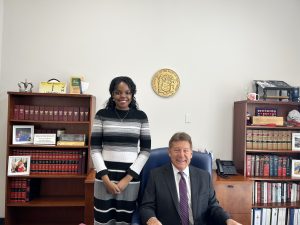
Second-year graduate student Nyada Bryant has found meaningful ways to connect her studies in international affairs to hands-on political experience through her internship with New Jersey State Senator John McKeon. In her day-to-day work, Nyada manages constituent communications, answers phone calls and emails, and researches local projects and initiatives. Her role emphasizes the importance of community outreach and ensuring that every constituent feels heard and represented.
Through her research and engagement with local initiatives, Nyada has seen firsthand how community building at the regional level mirrors the cooperative principles found in international diplomacy. Her background in political science initially drew her to this opportunity, allowing her to explore the natural overlap between domestic governance and global policy. She particularly enjoyed the chance to engage in thoughtful conversations with colleagues about the relationship between local politics and international affairs. Looking ahead, Nyada is eager to visit the Statehouse in Trenton and participate in an upcoming local campaign, experiences that will deepen her understanding of policy in practice.
Beyond her internship, Nyada is an active leader within the School of Diplomacy community. She currently serves as Secretary for UNA-SHU, Vice President of Sigma Iota Rho, and President of the Graduate Diplomacy Council. She was also recently accepted into the National Security Fellowship, a testament to her dedication to public service and academic excellence.
A proud Seton Hall alumna, Nyada continues to immerse herself in the university’s many unique opportunities for engagement and leadership. Outside of her academic and professional commitments, she is also a published writer, with short stories featured in a zine that raises funds for sickle cell research.
Looking toward the future, Nyada plans to pursue a Ph.D. in Public Policy and International Affairs, with aspirations to apply her research and writing skills within state government, the United Nations University, or the United Nations itself. Her journey exemplifies the spirit of global citizenship and community engagement that defines the Seton Hall School of Diplomacy.
by Michael Peel | Oct 14, 2025 | Graduate Students, Internship Experiences
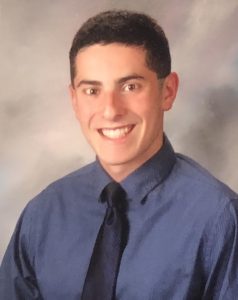
This spring and summer, second-year graduate student Michael Peel brought his classroom learning into practice as an intern with the U.S. Department of Commerce. Pursuing a master’s degree in International Relations with specializations in Foreign Policy Analysis and International Economics & Development, Michael joined the Department’s Commercial Service Branch in Newark, New Jersey, where he gained firsthand experience supporting U.S. companies in the global marketplace.
Working closely with trade specialists, Michael stepped into his role during a particularly turbulent time in the federal government. As staff transitions left offices short-handed, he assisted trade specialists in taking on new responsibilities and ensuring that client companies continued to receive critical support. His daily responsibilities included conducting market research, pursuing foreign sales leads, drafting WIN statements for Congress, and helping U.S. businesses expand their operations overseas. Michael also worked extensively with financial services companies, an experience that helped him secure a government affairs internship in Washington, D.C., with MFA this coming fall and spring.
One of the highlights of Michael’s internship came early, when he was assigned a complex and high-stakes task. A U.S. company was entering into arbitration with a European partner over the supply of orthodontic equipment. The American side wanted proceedings in New Jersey, while the European side insisted on hosting them abroad. Michael was tasked with finding a suitable arbitration location in Europe that would satisfy both parties. To solve this, he researched European cities with strong orthodontic industries as well as reputations for reliable international arbitration. His analysis identified several cities where these factors aligned, and he presented his findings to his supervisors and both companies. The project not only showcased his research and problem-solving skills but also gave him a direct window into the complexities of international negotiation.
Reflecting on his experience, Michael emphasized how the internship allowed him to connect theory to practice, deepening his understanding of how international economics and trade policy shape real-world outcomes. He also noted how navigating such responsibilities in a transitional period at the Department sharpened his adaptability and resilience skills he knows will serve him well as he advances in his career.
After graduating in May, Michael plans to remain in Washington, D.C., to pursue opportunities in government affairs and international trade policy. His long-term career goals lie at the intersection of foreign policy, and economics, where he hopes to continue bridging the gap between public and private sector interests in the international arena. Michael credits the School of Diplomacy for preparing him to succeed in a professional environment that demands both critical thinking and practical skills.
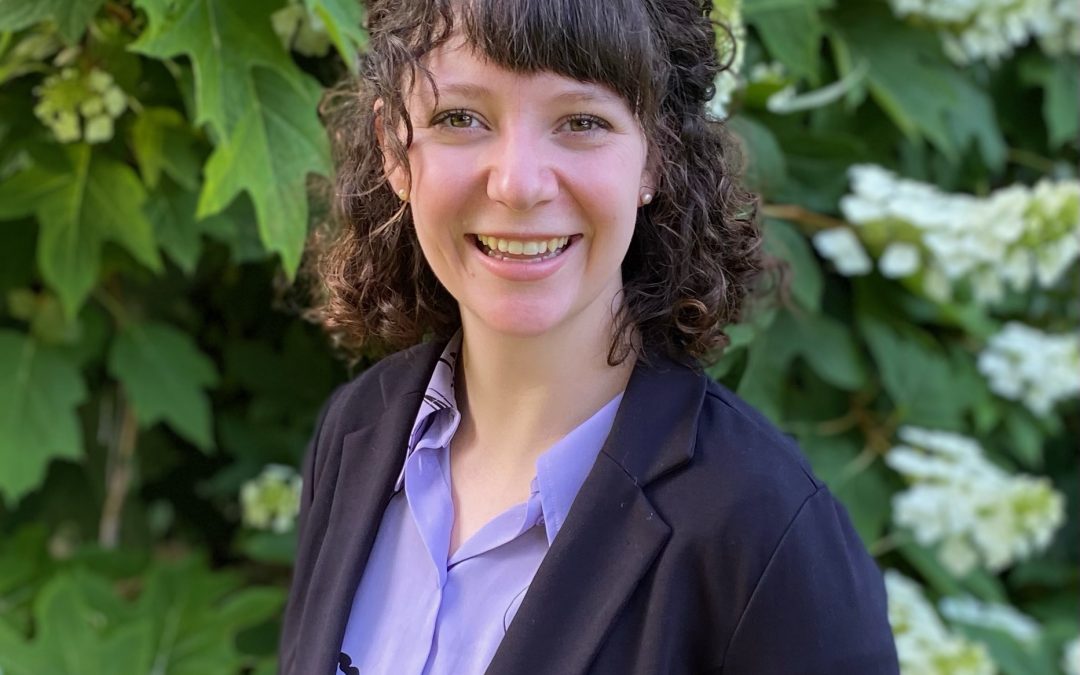
by Alondra Duncan-Belford | May 31, 2023 | Graduate Students, Internship Experiences
Hello! My name is Christina Grossen, and I am a recent Master’s graduate of Seton Hall University’s School of Diplomacy and International Relations. I was a research/data intern coding cultural heritage sites in Ukraine. While my internship was through the Smithsonian Cultural Rescue Initiative (SCRI), I worked directly with a team for the Cultural Heritage Monitoring Lab, built on a partnership between the Smithsonian and the Virginia Museum of Natural History. Fortunately, I found this internship through the Virtual Student Federal Service (VSFS) program offered by the US Department of State.
In the Fall of 2021, in Dr. Huddleston’s Causes of War class, I read Dr. Ron Hassner’s (2008) article, “To Halve and Hold: Conflicts over Sacred Space and the Problem with Indivisibility.” Dr. Hassner examines the causes and characteristics of conflict over sacred spaces, which opened my eyes to the vital role of cultural spaces in conflict. For many, cultural spaces are used as a unifying identity source, but for others, their destruction serves the same purpose. I wanted to explore the impact of cultural heritage sites as culture itself plays such a defining role in understanding peace and stability in conflict situations.
Unlike other internships and roles I have held in the past, I had a singular focus for SCRI – to code lists of cultural heritage sites. Every few weeks, I was given a new list of sites to go through and mine for information as deeply as possible for those sites. Sometimes the preliminary information contained names and geographic coordinates; other times, it simply included coordinates. Then using multiple online maps, I examined the site and look to find whether it is correctly listed, was used by the military, is lootable, and whether or not the site has a tourist function. Following critical information about the site, I determined whether it is listed on several tourist sites. I do this for every site assigned, and if questions or concerns arise, I reach out to my team lead and supervisor. Though I enjoy the investigative nature of the work, I sometimes find it challenging due to language barriers. The focus of this internship changes every year depending on the international climate. When I applied, I did not know I would look specifically at Ukraine. However, because of current world events, leaders and institutions must research current happenings and potential threats. Because I lack Russian and Ukrainian language knowledge, I had to problem-solve and locate helpful tools to alleviate some of my issues. This internship provided precise insight into what I am looking for in a career. While I enjoy the consistency of this work, I realized I desire more diversity in my workflow. Part of the reason I accepted this internship was to develop the data analytics skills I started exploring in my research methods class. This internship has afforded me that opportunity.
I recommend this internship to others interested in strengthening one specific skill. SCRI focuses on a niche area of study, and not everyone may enjoy the intense focus on coding and data analysis. However, because this internship is part of the VSFS, other departments offer training and informational sessions to help you develop additional skills and knowledge during the experience. I am thankful for the opportunity and what I learned from this internship!
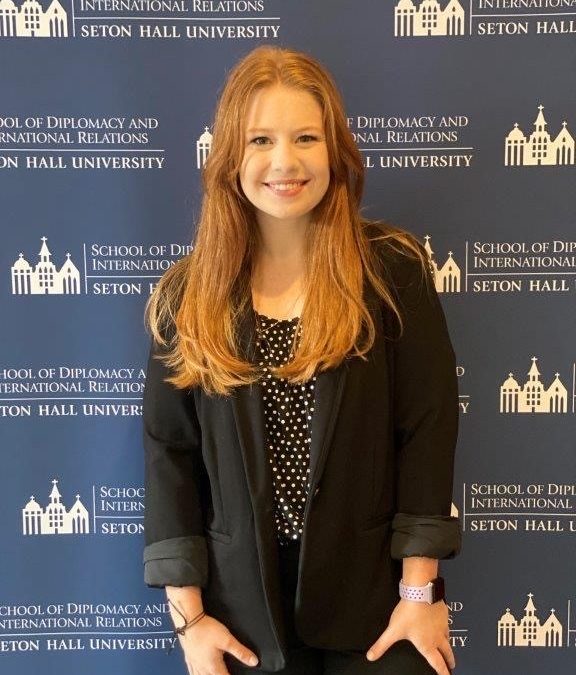
by Alondra Duncan-Belford | Apr 25, 2022 | Graduate Students, Internship Experiences
My name is Taylor Rodier, and I am a second-year graduate student at the School of Diplomacy. From the moment that I entered the graduate program at the School of Diplomacy, my goal has been to pursue a career at the US Department of State. I interned with two State Department bureaus: the Global Engagement Center and the Office of the Undersecretary for Civilian Security, Democracy, and Human Rights.
My position at the GEC was on the Iran team; my main responsibility was to track and synthesize the most current academic and think-tank research on Iranian disinformation tactics into a concise document that is then shared with over 700 individuals, both within the Federal Government and with our international government partners. I also served as one of two Intern Team Coordinators. My partner and I helped our supervisor track and peer-review the work of other threat teams, coordinate deadlines, and delegate special projects to other interns. One of my favorite projects with the GEC was to track Iranian disinformation regarding the Afghanistan withdrawal. Another one of my principal duties was to distill an entire article into a few lines and to provide a BLUF (bottom line up front) that summarizes the most crucial pieces of information into only one sentence. This sounds daunting, but luckily, I had received instruction on this process in my Diplomacy coursework which allowed me to be sufficient at this task early on.
My second internship in the Office of the Undersecretary for Civilian Security, Democracy, and Human Rights was very different from the GEC but immensely valuable in terms of professional experience. The Office of the Undersecretary leads Department efforts to prevent and counter threats to civilian security by assisting countries around the world to build more democratic and stable societies. I worked directly under the Under Secretary’s Chief of Staff, mostly on issues related to the resettlement of Afghan refugees. I synthesized information from cables and send daily updates to the Under Secretary so that she can stay informed about events on the ground in the Middle East. I also tracked trends and flag updates of notes, which helps to inform which projects and communications get priority attention from her. I was able to assist with information-sharing efforts between all eight offices that are actively being used to support the resettlement of Afghans.
Overall, my experience in the two bureaus has been the most valuable because I am getting to experience the State Department from the standpoint of both the Civil Service and Foreign Service. My work in the GEC is much more research-based, while my projects with the Under Secretary tend to be more task-oriented and responsive to daily events on the ground. I am incredibly grateful for these opportunities and the way they have helped me develop as a professional in this field. I am also endlessly grateful for the solid foundation that the School of Diplomacy provided me as it has been vital to my success in this role.
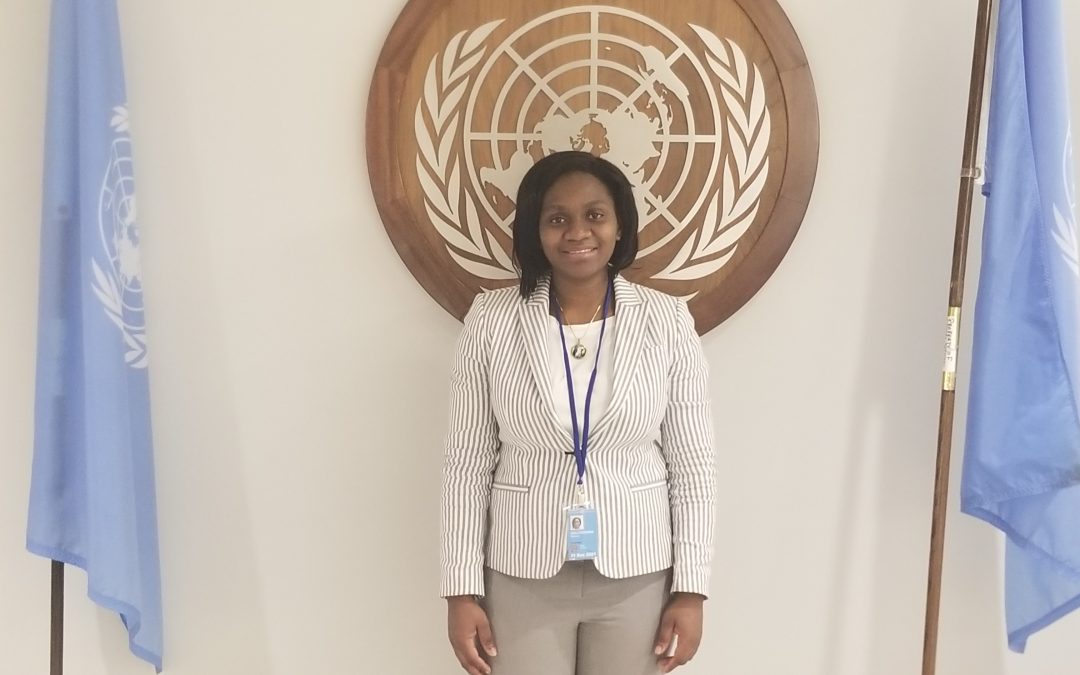
by Alondra Duncan-Belford | Jan 27, 2022 | Graduate Students, Internship Experiences
My name is Onyinye Bridget Ogili-Foreman and I am a second-year graduate student at The School of Diplomacy and International Relations. I worked as a Civil Affairs Officer intern at the United Nations Department of Peacekeeping Operations (UNDPKO) at the UN Headquarters in New York City. I always aspired to work with the UN because I have a passion for its duties, especially in areas of international security and peacekeeping in high-conflict regions. I became especially interested in the UN after taking courses that exposed me to the workings of the UN and its inherent role in international affairs.
My responsibilities included providing research assistance for policy documents and evaluating reports involving the work of different missions in the field. I also had the opportunity to work with U.N. experts to actually create policy documents. These documents will later be used in the policy prescriptions related to U.N. peacekeeping.
My internship is directly related to my coursework at the School of Diplomacy through the goals of the U.N. The goal of the U.N. is to promote diplomatic engagements between countries and create opportunities for them to find common ground on many issues that benefit from multilateral efforts. Many of the assignments I was given at the internship came naturally to me due to my previous coursework. Learning theories regarding international security and the roles of international organizations gave me material knowledge on most of the work and activities that I had the opportunity to engage in. I gained firsthand experience on how policy documents are drafted, as well as the consultation and negotiation processes needed, all of which sharpened my research, writing and analytical skills.
This internship reinforced my ambition to pursue a career with the UN and other opportunities linked to international security both in the private and public sector. My initial challenge was adjusting to work with a group of expert professionals who are more advanced both in education and experience, but I quickly learned to be humble and to ask questions. One of the most rewarding experiences was interacting with different stakeholders where I learned the nitty-gritty of the peacekeeping work. My greatest achievement has been helping to complete the work that would improve protection and safety of civilians in conflict. The satisfaction of knowing that the guidance we developed could be saving lives is truly refreshing.
My biggest take away from this internship is learning how to work with others, how to treat and respect people’s opinions and to seek to listen more. I believe these skills are going to be incredibly useful for me as a future diplomat that will be interacting with people of diverse backgrounds. I certainly recommend this internship for my fellow students as it will broaden your horizon and positively impact your personality.
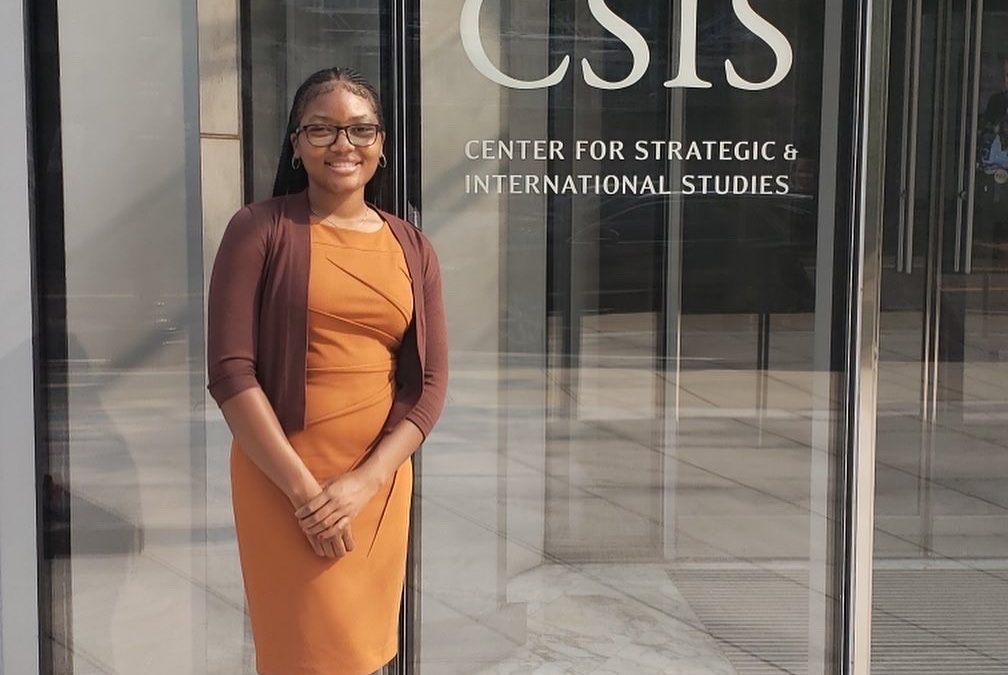
by Mohamed Elshekh | Oct 5, 2021 | Graduate Students, Internship Experiences
My name is Tajah McCray, and I am an M.A. candidate at the School of Diplomacy. In Summer 2021, I was a research intern with the Wadhwani Chair in U.S-India Policy Studies at the Center for Strategic and International Studies (CSIS). CSIS is a think tank based out of Washington D.C. and its purpose is to define the future of national security. The Wadhwani team conducts research on how the United States and India can further enhance their cooperation in areas such as defense and economic development, including promoting business engagement between the United States and India, and the environment.
While pursuing my undergraduate degree in International Relations I went on an International Service-Learning Trip to India. I stayed in India for about a month and visited the states of Andhra Pradesh and Uttar Pradesh. During my time in India, and after I returned to the United States, I knew that I wanted to continue my studies in the field of International Relations and further my knowledge of India and South Asia. That experience led me to the Diplomacy program here at Seton Hall University and the Internship with the Wadhwani Chair in U.S-India Policy Studies.
As a research intern, I had multiple tasks but two tasks that I enjoyed were tracking information regarding the COVID-19 outbreak in India and writing my own blog post to publish with CSIS. I enjoyed the research because it gave me a chance to explore the healthcare system of another state and I was exposed to different challenges India and other emerging states face regarding global health such as the lack of medical supplies and the impacts of vaccine nationalism.
I was given the freedom to write blog posts for CSIS on topics such as U.S-India relations, Indian economic reforms, innovation, and defense. While I was extremely excited about this opportunity it was challenging. The posts must be written in executive style writing which I am familiar with thanks to two classes I took here at Seton Hall which are Comparative Foreign Policy and the Statecraft of Foreign Policy. During these classes, I was tasked with writing an executive summary on U.S-Saudi Arabia relations and U.S-India relations. As a result, I felt prepared to write my blog post.
I would recommend this internship to anyone interested in learning about India or South/Southeast Asia. During my time at CSIS I covered India’s cooperation with China, Japan, Bangladesh, Myanmar, Sri Lanka and more. In addition, I expanded my knowledge on many areas related to international relations such as trade, defense, global health, and international law. I also had the opportunity to network with senior officials who are in careers that I potentially would like to enter such as becoming a Research Fellow in South Asia relations at the Heritage Foundation or entering a career in the civil service through the U.S. State Department. This internship has built my confidence and it truly was a great learning experience.
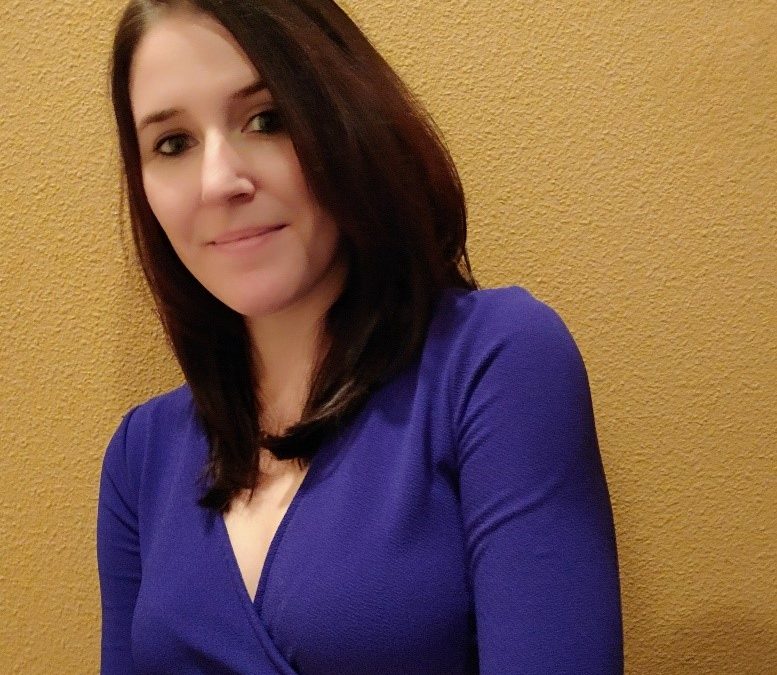
by Mohamed Elshekh | Jun 28, 2021 | Graduate Students, Internship Experiences
My name is Jocelyn Anderson and, I am a graduate student at the Seton Hall University’s School of Diplomacy and International Relations specializing in Global Negotiation & Conflict Management and International Security. I am interning at Echo Analytics Group (EAG), an Open-Source Intelligence (OSINT) research and analysis company in Tampa, Florida.
As an intern for EAG, I am learning many new skills that are important for my development as a professional and a student. Many of my projects involve social media research and other sources of publicly available information. This work is particularly useful in my academic research as my Master Research Project focuses on the spread of disinformation campaigns over social media. As technology continues to advance, social media is becoming a useful platform for state and non-state actors to engage in disinformation operations. By learning how to be an effective OSINT analyst, I can understand how these operations are structured and accurately guide my graduate research. This internship also contributes to my future career plans. I am interested in pursuing an intelligence career – specifically counterterrorism. Interning with EAG provides me with critical insights into what I must do to reach my professional goals.
Interacting with the EAG staff is one of my favorite parts of the internship experience. EAG analysts have professional experiences in the military and special forces, intelligence, and investigative journalism. The conversations I have with staff members improve my technical skills while simultaneously stimulating my intellectual curiosity. Something we often speak about at EAG is the importance of the human component in OSINT. People often forget that every text message, photo, and online engagement is an indicator of human behavior. That is, online interactions provide critical insights into an individual’s thoughts and motivations. This internship is helping me develop a new way of looking at my work through a human-centered approach that considers the behavioral aspects of social media engagements. As an intern, I also have access to the Academy Training that EAG offers. This means that along with my hands-on training, I can work on my own development through taking highly informational and beneficial courses. These courses help with how to approach scenarios as an analyst but also with the more technical aspects such as coding.
I am very grateful for my time at EAG and I hope to continue my professional relationship with them beyond this semester. I have not only learned new skills, but I have developed a different way of looking at research and intelligence gathering. I hope that through my experience with EAG, I may be able to develop even better ways to identify and disrupt disinformation campaigns and provide threat assessments that may be beneficial to U.S. interests.








